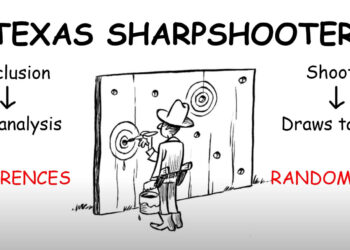- Image via Wikipedia
More than 25 years ago, a high school teacher of mine said presciently that what would matter in the future would be less “what you know” but more the ability to know where good information exists. There was just going to be too much information.
This was viewed as nearly sacrilegious in the setting of a school. After all, wasn’t the goal to pack our minds with knowledge?
People have worried about knowledge being stored outside human heads ever since Plato decried the printed word as a mere shadow of the thing it represented. However, storing knowledge in more durable and reliable containers has proven efficient and effective. After all, it’s how we know what Plato was droning on about.
Now comes Frank Schirrmacher, a German journalist, worrying about “The Age of the Informavore,” the natural occurrence when there is a population explosion of ideas and not enough brains to cover them. For him, putting more information into more virtual vessels is changing . . .
. . . the way humans think in real life. . . . And you encounter this not only in a theoretical way, but when you meet people, when suddenly people start forgetting things, when suddenly people depend on their gadgets, and other stuff, to remember certain things. This is the beginning, its just an experience. But if you think about it and you think about your own behavior, you suddenly realize that something fundamental is going on.
Schirrmacher’s observations are many. He worries that algorithms like Apple‘s “Genius” in iTunes will impinge on the freewill of our children. He notes how we are now using computing metaphors to describe thinking and actions. He talks about how attitudes about technology are reflected in politics. He also reflects on the the rather trite (by now) thought that while information isn’t scarce, attention can be exhausted. And since attention feeds information, competition for attention means Darwinian selection is going on at a high rate in the information space.
It’s a wide-ranging, if uneven, interview, sometimes really engaging and sometimes a bit opaque. Also, it’s based somewhat on strange information he himself possesses but that doesn’t stand up to external verification, such as his assertion that in the 1990s “nobody predicted the Web” or predicted Google. (People actually predicted both, in essence, decades earlier.)
Nicholas Carr picks up on Schirrmacher’s thinking, along with others, and worries that separating ourselves from the larger information cloud — “the database of intentions” as one person calls it — will continue to be difficult, and may eliminate some familiar experiences, like hunting down an elusive song or album. This is probably true, since we are integrating an increasingly available and multi-dimensional digital archive into every screen we can. Soon, we will have total information immersion.
Fundamentally, I like the term “informavore” because we’ve always been informavores. It’s just that now we have sufficient abundance to give it a name. When food was scarce, we didn’t have the luxury of contemplating omnivores versus herbivores vs carnivores. We were just hungry.
Informavores are going to be changing the health care system. I’ve been reading “Superfreakonomics,” and I just finished a chapter involving emergency room physicians who realized in the 1980s that emergency medicine was essentially predicated on information, and that their ER was suffering from “datapenia,” or a shortage of data. They invented a solution that automated information gathering, improving physician efficiency, improving outcomes, and ultimately becoming a major part of the healthcare information infrastructure.
Scholarly publishing provides one of the best information food chains around for informavores, and this is a huge opportunity. We may be on the brink of fulfilling, to a new and exciting level, the timeless desire to know. Want to know the origin of a “baker’s dozen”? Just look it up on your phone, and 30 seconds later, you know.
Humans are filters on the world. Our eyes receive light, but our brains see. Change how you think or what you know, and you see different things. Significance can be redefined. A colleague coughing on you this month means something more than it did a year ago. The color green on the Empire State Building this year means something other than it would have last year.
Context shifts, cultures change, and perspectives emerge. Yet, the hunt continues.
It seems like we now have more choices, more options, and more information — not just the received wisdom of a dominant ideology that filters information down to such an extent that it actually shapes reality, even becomes reality. Isn’t it better to have verifiable, divergent, and multi-faceted information rather than incomplete information from authorities?
We’ve always been informavores. The difference is now that we have supermarkets to prowl rather than a gruel pot in a hovel at the center of town.

![Reblog this post [with Zemanta]](http://img.zemanta.com/reblog_e.png?x-id=b6ff243b-a1d6-4ccd-ade0-ca46d3a95137)


